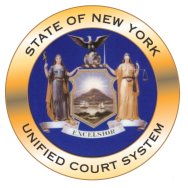 Towards the end of 2014, the New York State Court System announced a series of rule changes affecting default judgments in order to prevent so-called “sewer service” in consumer credit debt collection cases. A “sewer service” case involves questionable and often fraudulent service of process to a defendant, who is unable to defend against a lawsuit if they have no notice of it. This was an endemic problem in New York’s debt collection lawsuits.
Towards the end of 2014, the New York State Court System announced a series of rule changes affecting default judgments in order to prevent so-called “sewer service” in consumer credit debt collection cases. A “sewer service” case involves questionable and often fraudulent service of process to a defendant, who is unable to defend against a lawsuit if they have no notice of it. This was an endemic problem in New York’s debt collection lawsuits.
Above and beyond “sewer service” is the issue of debt buyers and the sloppy record keeping involving in the transfer of the subject debts from credit card companies to debt collectors to debt buyers. While they debts may be valid, the search for ever-increasing expediency and low costs (through use of cut-rate process servers) by credit card and debt buyers resulted in a large number of seriously flawed cases. Justice Noach Dear estimates “that roughly 90 percent of the credit card lawsuits are flawed and can’t prove the person owes the debt.” (Judge Dear now sits in the New York Supreme Court’s Foreclosure Resolution Part in Kings County.) This lack of proof gives debtor/defendants a very powerful defense, but if they do not know about the lawsuit, they cannot defend themselves. The widespread use of “sewer service,” as mentioned above, resulted in a large proliferation of default judgments for credit card debts in New York State. In an attempt to stem the tide of those devious actions, these new rules require that creditor/plaintiffs submit affidavits containing detailed proof in support of any default judgment application.
The Court wants plaintiffs to show more exhibits than they do in a typical lawsuit complaint. The new rules require that the plaintiff show the validity of the debt at issue, and importantly, the chain of ownership for that debt. In actions started by third-party debt buyer/plaintiffs, affidavits will be required from the original creditor and all additional intervening debt buyers. The affidavits will have to be executed by individuals having personal knowledge of the debts. Additionally, copies of key documents must be attached to the affidavits, including the party’s credit agreement and the most recent monthly statement. The plaintiff must include other information and documentation to make sure they correctly identify the defendant, including the last four digits of the account at issue, a final itemized summary of the balance allegedly due and the complete chain of ownership for the debt, going back to the original creditor. Additionally, in order to prevent the practice of suing where the statute of limitations has run, the creditor’s counsel must submit an affirmation that the debt is still actionable. Finally, to ensure that defendants receive notice of a lawsuit, the plaintiff must provide the court with an additional notice of the lawsuit to be mailed not by the plaintiff, but rather by the court itself. No default judgment will be entered if that notice is returned to the court as undeliverable.
If these rules are enforced, they would significantly reduce the number of questionable credit card lawsuits which have been clogging up the civil courts dockets. While we are waiting for the NY State Court system to provide analysis and statistics regarding the impact of the new rules, in our office we have noticed a new tactic being used by debt buyers. They are digging into their files and looking for old judgments to prosecute. Under CPLR § 211, old judgments are enforceable in New York for 20 years! Many of the judgments that debt buyers are enforcing now were obtained through “sewer service” that the new default judgment rules were meant to prevent. Many debtor/defendants have no notice of the lawsuit or judgments at all. The first time they find out about it is when the debt buyer seeks to enforce the old judgment. This can be through a garnishment or a frozen account, or both.
David I. Pankin is a New York bankruptcy lawyer helping consumers vacate judgments, stop garnishments and unfreeze bank accounts, either through bringing an order to show cause, by negotiating with the holders of the judgment being enforced, or through a bankruptcy filing. If you have any questions about these new rules or the tactics debt collectors are using to get around them, please contact The Law Office of David I. Pankin, PC at 888-529-9600. We have three convenient locations and have been helping consumers for over 15 years.
Sources:
https://www.nycourts.gov/rules/ccr/





